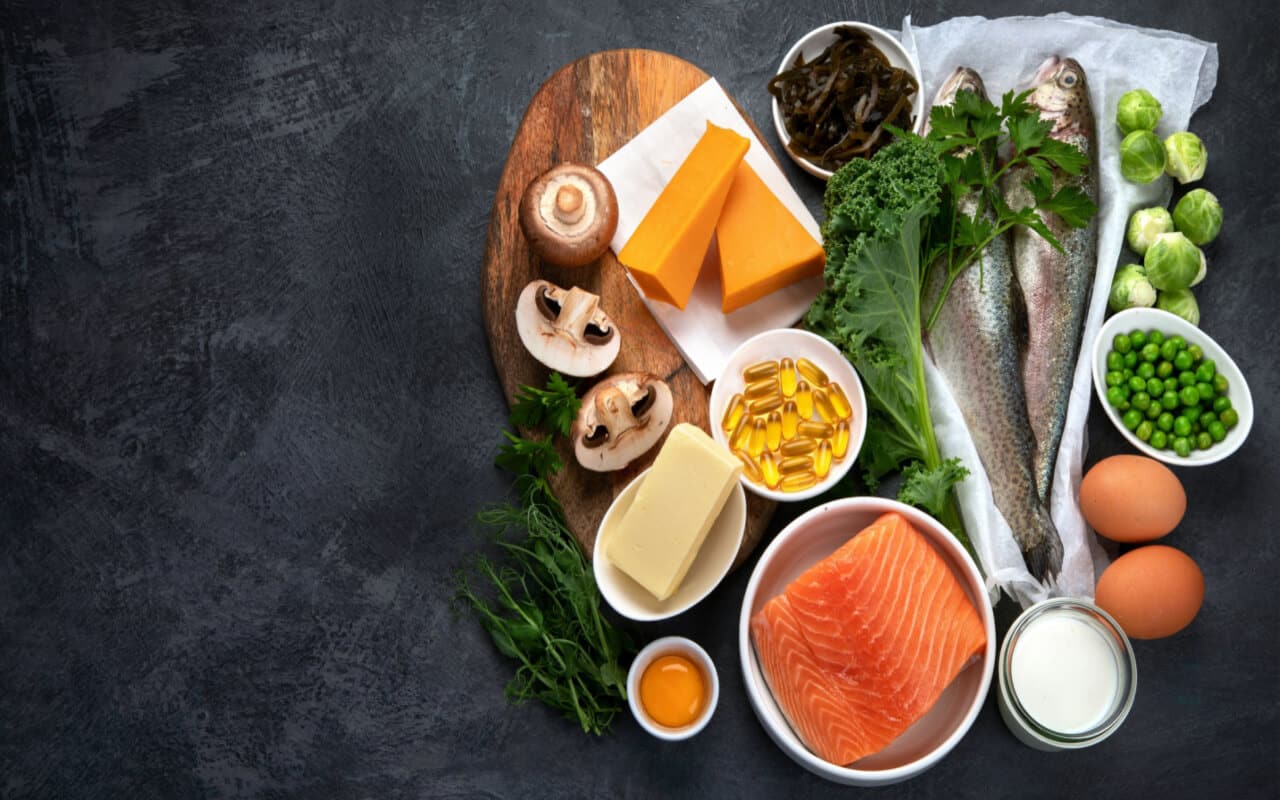Vitamin D Rich Food Sources – Vegetarian & Non-vegetarian

The fat-soluble vitamin D, sometimes referred to as the “sunshine vitamin,” is crucial for good health.
Globally, low vitamin D levels are common. Fatigue, muscle soreness, weak bones, and – in children — stunted growth are signs of insufficiency.
Children under 12 months of age need 400 IU (10 mcg) of vitamin D daily, while children aged 1 to 13 need 600 IU (15 mcg) daily to maintain appropriate levels. Aim for 600 and 800 IU (15 and 20 mcg) for adults and pregnant or nursing women.
However, very few foods, especially animal items, contain this vitamin. As a result, it may be challenging to consume enough of this nutrient, especially if you follow a vegetarian or vegan diet.
At the same time, there are a few meals and methods that can help you out. Besides food, make it a point to buy health insurance that protects you from unforeseen circumstances. *
A health insurance premium calculator is a tool you may use online to determine the amount of coverage required based on your needs.
Here are a few excellent vegetarian vitamin D sources, some of which are also great for vegans.
- Sunshine
When your skin is exposed to ultraviolet B (UVB) rays from the sun, vitamin D can be produced. This is how most people obtain at least some of their vitamin D.
In order to get adequate vitamin D levels, the National Institute of Health (NIH) recommends that you expose your face, arms, legs, or back to sunlight for 5 to 30 minutes twice a week without using sunscreen.
However, it might not be feasible to attain this level of direct sun exposure depending on your geographic location or environment.
Your skin’s capacity to create enough vitamin D is also influenced by other variables, including your age, skin colour, and use of sunscreen, as well as the season, time of day, and level of pollution or smog.
- Egg yolks
Vitamin D is present in egg yolks, albeit the amount depends largely on the diet and outdoor access of the chicken.
For example, eggs from chickens fed a vitamin-D-enriched diet can contain up to 6,000 IU (150 mcg) per yolk, while eggs from chicks fed normal feed only have 18-39 IU (0.4-1 mcg) of vitamin D.
Similar to how hens reared outside are exposed to sunlight and produce eggs that typically contain 3–4 times more vitamin D than chickens raised inside.
Vitamin D levels are often higher in free-range or organic eggs. The presence of this nutrient in the eggs may also be mentioned on the label.
- Certain mushrooms
When exposed to UV radiation, mushrooms have the unusual capacity to produce vitamin D. They are the only edible plant source of vitamin D as a result.
Additionally, they appear to be just as effective as vitamin D supplements at increasing levels of this vitamin in your body because their vitamin D concentration stays high throughout their shelf life.
When purchasing, check for a label notation noting the presence of vitamin D. If you’re having problems locating UV-exposed mushrooms, you might have more success visiting your neighbourhood health food store or farmers market, which frequently has wild mushrooms.
- Cheese
Vitamin D is naturally present in cheese, albeit in very small amounts.
The majority of types have a 2-ounce (50-gram) portion containing 8–24 IU (0.2–0.6 mcg) of vitamin D. Depending on how the cheese is made, levels change.
Speak with your healthcare practitioner if you’re worried that you might not have enough of this vitamin in your system. Choose proper health insurance after comparing various policies. Depending on your age, you can even opt for senior citizen health insurance. *
* Standard T&C Apply
Insurance is the subject matter of solicitation. For more details on benefits, exclusions, limitations, terms, and conditions, please read the sales brochure/policy wording carefully before concluding a sale.






